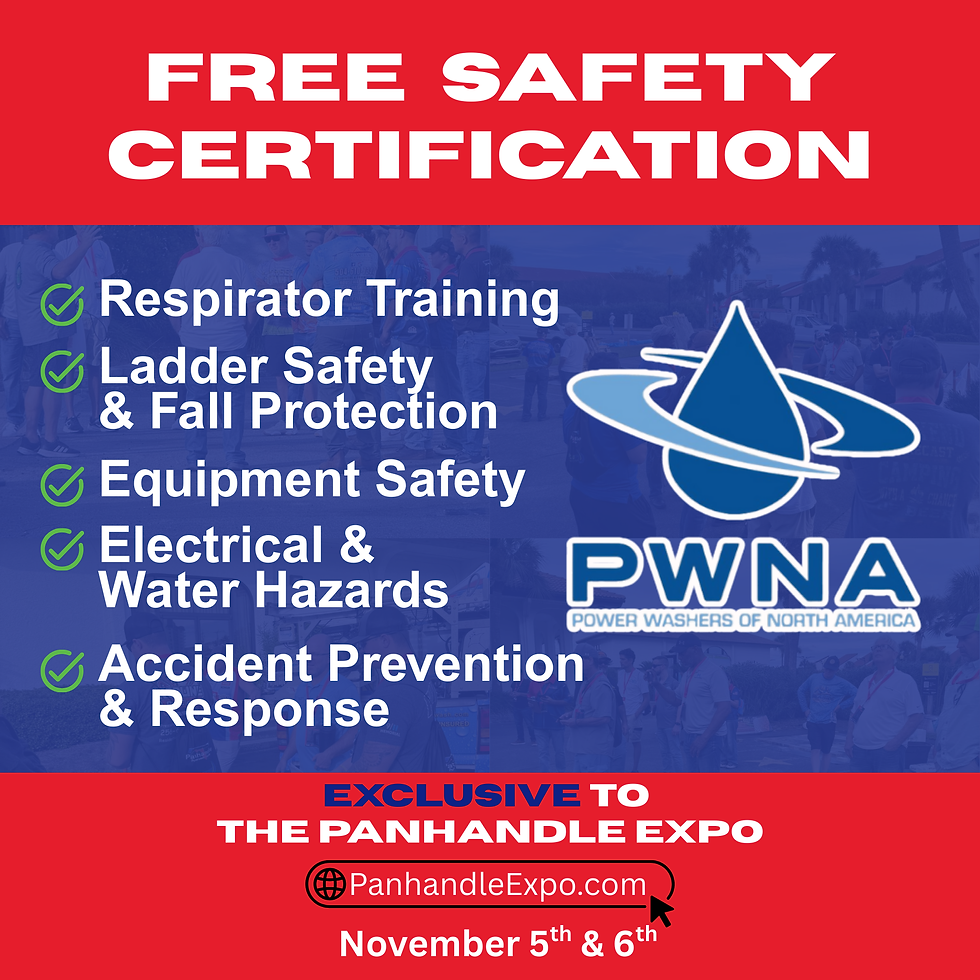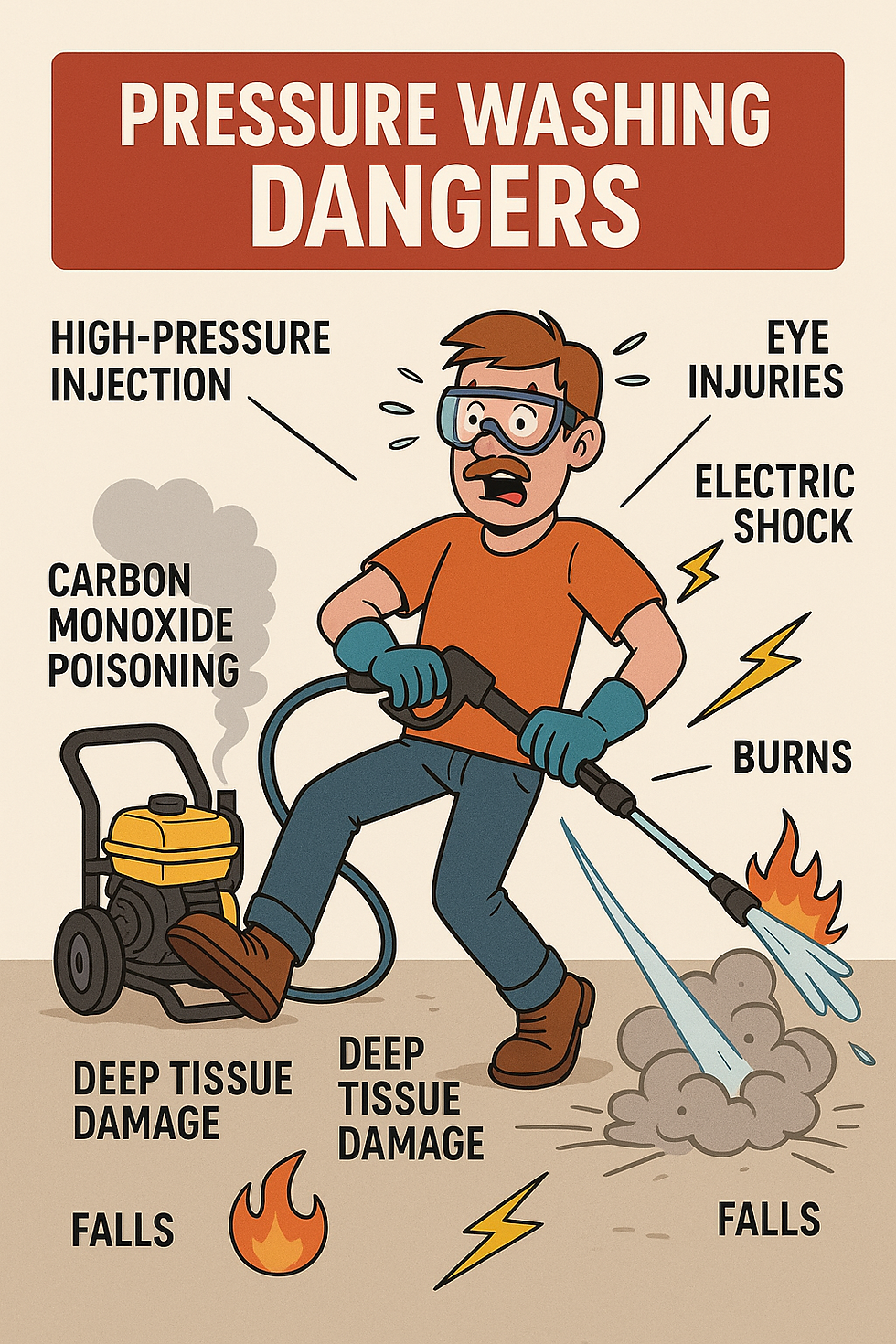What Every Pressure Washer Should Know About Chemical Irritation on the Job
- Trudi Weickum

- Jul 19, 2025
- 2 min read

If you’ve ever finished a job with itchy arms, irritated eyes, or red splotchy skin that won’t quit — you’re not alone. Chlorine exposure is one of the most common hazards in our industry, but there’s a lot of misinformation out there about what’s actually happening when your skin reacts to it.
Let’s set the record straight.
First — It’s Not an Allergy
One of the biggest myths floating around is that people can be allergic to chlorine.
But that’s not how chlorine works.
✅ Chlorine is not an allergen
❌ It doesn’t trigger your immune system the same way things like pollen, peanuts, or pet dander do
✅ It’s an irritant — and a strong one at that
In other words, when you break out in a rash or get red, itchy eyes after handling SH (sodium hypochlorite), it’s not an allergic reaction — it’s a chemical irritation.
What You’re Feeling Is “Contact Dermatitis”
When your skin reacts to chlorine, you’re experiencing a condition called contact dermatitis — a fancy term for a simple problem: your skin doesn’t like what it's touching.
Symptoms often include:
✅ Itchy, inflamed skin
✅ Raw, red, or scaly patches
✅ Swollen or cracked areas
✅ Sore or stinging eyes
✅ Respiratory irritation (like coughing, sneezing, or sinus flare-ups)
Some of us are more sensitive than others — but everyone is vulnerable when the wind’s blowing bleach mist back in your face for six hours straight.
I Learned the Hard Way
I’ll be honest — I learned this lesson the hard way.
One windy day out on the job, I got soaked. Socks, shirt, boots — chlorine in all the wrong places. And by the time the job was done, my skin was on fire and my eyes were raw. I was miserable.
Now? I never leave the house without an extra set of clothes, socks, and boots in the truck. Because when you get saturated, you need to be able to get dry and clean — fast.
It might sound like overkill, but anyone who’s dealt with a full-body chlorine rash knows it’s not something you want to fight through twice.
Smart Contractors Take Safety Seriously
Here’s the bottom line:
We use powerful chemicals to do professional-grade work — and those chemicals can hurt you if you’re not paying attention.
That’s why PPE (Personal Protective Equipment) isn’t optional.
That’s why education matters.
And that’s why we have these conversations at the Panhandle Expo.
Want to Learn How to Protect Yourself and Your Crew?
Chemical safety is a real part of this business — and if you’re scaling, hiring, or just working longer hours, the risk of exposure multiplies fast.
At the Panhandle Pressure Washing Expo, we don’t just talk about growth.
We talk about doing the job right — safely, legally, and sustainably.
🧪 Learn about:
Safe handling of bleach and surfactants
Best practices for PPE on the job
How to prevent and treat chlorine exposure
Industry-tested techniques from real pros in the field
🎟️ Register today for the Panhandle Pressure Washing Expo
Because taking care of your skin, your lungs, and your crew isn’t optional — it’s leadership.
By Trudi Weickum | Industry Educator | Panhandle Pressure Washing Expo








Comments